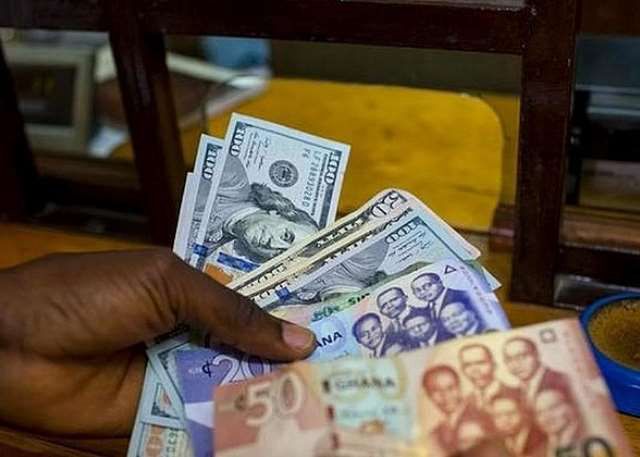The Ghanaian Cedi’s Performance Against Major Currencies: A Comprehensive Overview
The Ghanaian cedi’s value against major international currencies, particularly the US dollar, the British pound, and the Euro, has fluctuated recently. As of June 12, 2025, the cedi experienced a slight depreciation against the US dollar. This analysis will delve into the prevailing exchange rates across various market segments, including forex bureaus, the interbank market, and money transfer platforms. Understanding these nuances provides a clearer picture of the cedi’s current standing and its implications for international transactions and the Ghanaian economy.
Forex Bureaus and Interbank Market Rates: A Comparative Analysis
Forex bureaus, acting as intermediaries for currency exchange, provide slightly different rates compared to the formal interbank market. The average buying rate for the US dollar at forex bureaus stands at GHS 11.50, while the selling rate is GHS 11.95. This disparity reflects the bureau’s margin for profit and operational costs. In contrast, the interbank market, where banks exchange currencies directly, offers a narrower spread. The buying rate for the dollar on the interbank market is GHS 10.24, and the selling rate is GHS 10.26. This difference highlights the generally more favorable rates available through the interbank system, although accessibility is typically limited to larger transactions and institutional clients.
For the British pound, forex bureaus offer an average rate of GHS 13.68 for buying pounds and GHS 14.64 for selling. The interbank market rate for the pound is GHS 13.90. Similarly, the Euro trades at an average of GHS 11.66 for buying and GHS 12.55 for selling at forex bureaus, while the interbank rate is GHS 11.78. These figures consistently show a premium for currency exchange services conducted at forex bureaus compared to the interbank market. Consumers and businesses making international transactions should be aware of these rate differences to optimize their exchanges.
Money Transfer Platforms: Competitive Rates and Convenience
Money transfer platforms like LemFi and Hurupay offer competitive exchange rates for remittances from the US and the UK to Ghana. LemFi offers a rate of GHS 10.23 per dollar, while Hurupay offers GHS 10.25. For pound transfers, LemFi provides a rate of GHS 13.85, and Afriex offers GHS 15.20. For the Euro, Afriex provides GHS 12.89, and LemFi offers GHS 11.70. These platforms often provide more convenient and faster transfer options compared to traditional banking systems, making them a popular choice for individuals sending money to Ghana.
Digital Subscriptions and Card Payments: A Unified Rate
For digital subscriptions to services like Netflix, Spotify, and Apple Music using Visa and Mastercard, the exchange rate is consistently GHS 11.02 per dollar. This unified rate simplifies transactions for consumers and provides predictability for budgeting recurring subscription costs.
Understanding the Implications of Exchange Rate Fluctuations
The slight depreciation of the cedi against the US dollar observed in June 2025 has implications for both the Ghanaian economy and individuals involved in international transactions. A weaker cedi can increase the cost of imported goods, potentially leading to inflationary pressures. Conversely, it can make Ghanaian exports more competitive in international markets. For individuals, a weaker cedi means that it costs more to purchase foreign currencies, affecting the affordability of imported goods and services, international travel, and remittances.
Factors Influencing the Cedi’s Exchange Rate
Several factors contribute to the fluctuations in the cedi’s exchange rate. These include supply and demand dynamics in the foreign exchange market, influenced by factors like international trade balances, foreign investment flows, and speculation. Macroeconomic indicators, such as inflation rates, interest rates, and economic growth, also play a significant role. Government policies, including monetary and fiscal policies, can influence the exchange rate through their impact on these macroeconomic factors. Finally, external factors such as global commodity prices and currency movements in major economies can also exert an influence on the cedi’s exchange rate.
Conclusion: Navigating the Currency Exchange Landscape
Understanding the nuances of the Ghanaian cedi’s exchange rate across different market segments is crucial for both businesses and individuals engaging in international transactions. By considering the rates offered by forex bureaus, the interbank market, and money transfer platforms, consumers and businesses can make informed decisions to optimize their currency exchanges. Staying informed about factors influencing the cedi’s exchange rate and monitoring the latest updates from reliable sources like Cedirates.com can help individuals and businesses navigate the dynamic currency exchange landscape effectively.














